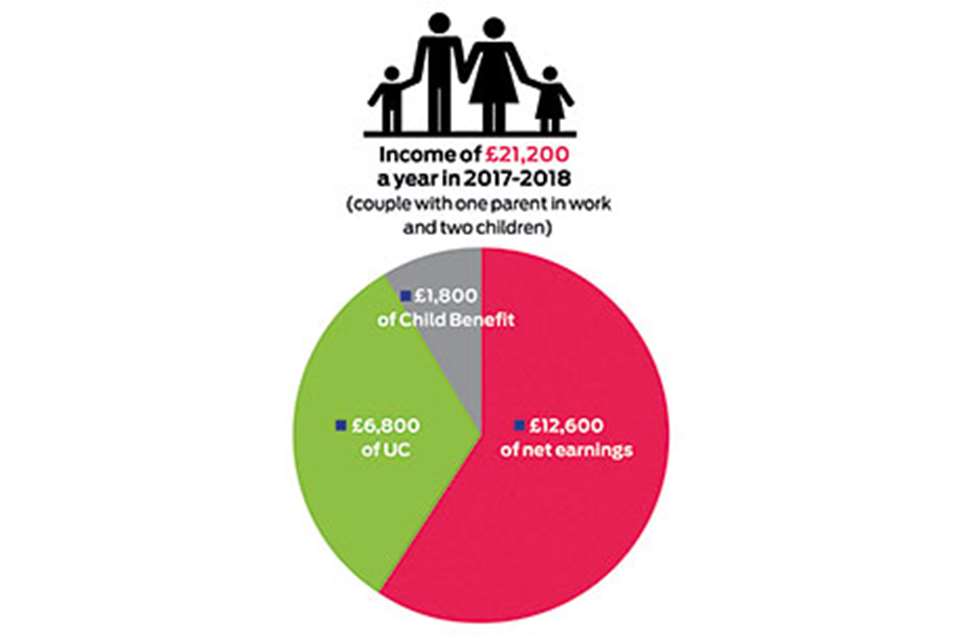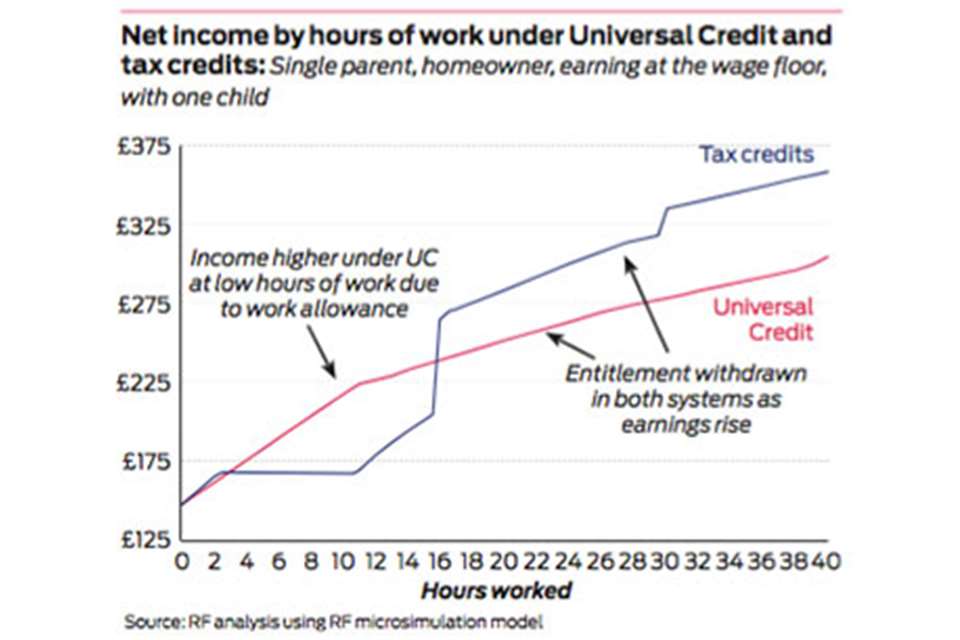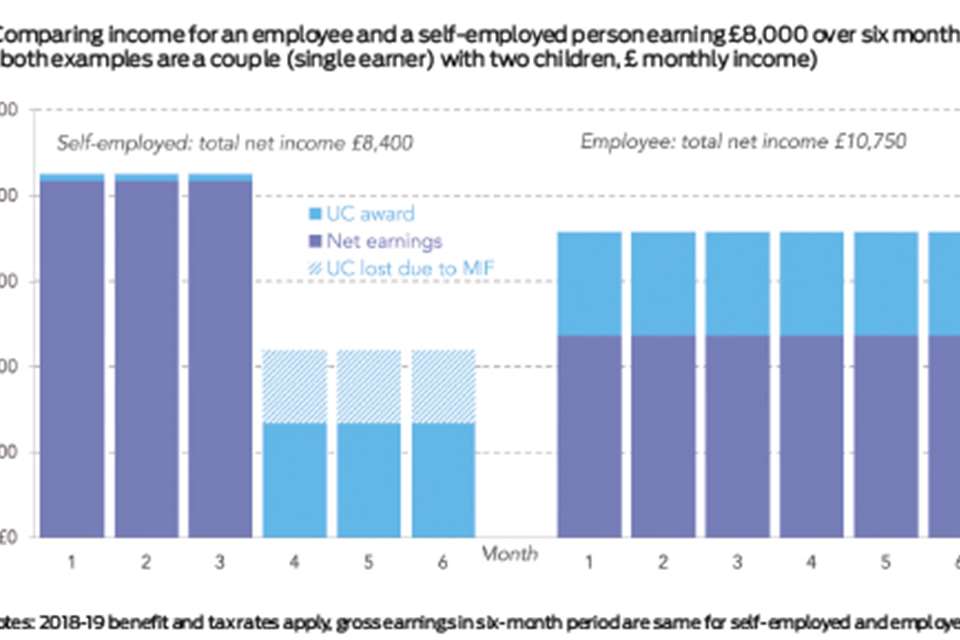Universal Credit: Part 4 - An incentive to work?
David Finch, The Resolution Foundation
Monday, April 16, 2018
Will Universal Credit make parents paying for childcare better or worse off if they increase their hours, asks David Finch at the Resolution Foundation

Families with young children are central to the design of Universal Credit. Many are likely to experience a period in which at least one parent is moving in and out of work. UC should help ease those transitions by removing the need to re-claim support when such changes occur.
Getting the design of this system right is hard. These families are likely to have changes in circumstance and receive multiple elements of UC (those for children, housing and childcare costs). The question of whether work pays will be particularly relevant as there is the added factor of how much time to spend at home with their young children.
An initial consideration for a family with a new baby is likely to be how UC may be affected by maternity pay. Statutory maternity pay is treated like any other earned income, reducing the UC award by 63p for every £1. Conversely, where overall maternity pay is lower than previous earnings, UC would increase by 63p for every £1 less of earned income.
DIFFERENCES TO TAX CREDITS
Low gains
When returning to work, families needing to pay for childcare must navigate a monthly claims process. Claiming support with the cost of childcare in UC is similar to the tax credits system, but with some important differences. UC will cover up to 85 per cent of total childcare costs (to a limit of £760 a month for one child, £1,300 a month for two children plus) and covers costs from the first hour that all parents work.
Even with this level of support in place the financial return from working more in UC can be very limited. Figure 1 shows the impact on a single-earning couple family’s income as the second earner in the household works an increasing number of hours. The parent already in employment works 37.5 hours a week at £8.75 an hour. They have two children aged one and three and need to pay for childcare to cover every work hour for the one-year-old, and for the three-year-old once the 30 hours free childcare offer is used up:
If the second earner moves into work at 20 hours a week earning £8.75 an hour, they earn £175 per week. Before paying for childcare their net income increases by £65 per week (from £504 to £569) because UC reduces as earnings rise. If they pay for childcare their income increases by only £46 per week.
If the second earner increases their hours to 37.5 per a week (earning a further £153 per week), their income increases by a further £53 per week before paying for childcare. After paying childcare costs their income increases by only £18 per week.
More effort
Claiming this support will also require more effort. Childcare costs must be claimed monthly, but only for costs actually paid. Claim for more than the monthly limit, perhaps due to paying for an entire term’s worth in one go, and support may be capped. Additionally, parents will need to find the funds upfront before claiming them back. That could be difficult for cash-strapped families.
This all stands in stark contrast to Tax-Free Childcare. That system might have had its own share of teething problems but imposes a less frequent eligibility check and matches support when paying to providers. Incorporating a similar approach within UC would be a big improvement.
OTHER BENEFITS
UC will also be the gateway to other forms of support – with these additional entitlements based on income and receipt of UC. One of those is free childcare for some two-year-olds. To determine eligibility, the plan is to introduce an earnings threshold above which families would not be entitled. This broadly mirrors the 16 hours threshold that currently exists (for 30 hours) and should mean a similar number of children are entitled. Because this support remains in place once it is claimed, it can only improve financial incentives to work. The big challenges for two-year-old childcare – boosting availability and take-up – are not UC-related.
The other element of support which is provided based on receipt of UC is free school meals. The idea is to determine eligibility in a similar way to the two-year-old childcare offer – with an earnings threshold set at £7,800 (16 hours at the expected national living wage level for 2020). Roughly the same number of families would be entitled as now. But people increasing their earnings and moving above that threshold could find themselves financially worse off. When free school meals eligibility ends, their income drops by an effective £22 per week. Because of the rate at which UC entitlement is reduced as earnings rise, the family will need to earn an additional £60 a week to bring their income back to the same level.
This appears a striking disincentive to earn more, but how people will respond is hard to tell. Currently very few people in work would earn below that threshold, but they do earn just above it – so they could decide to reduce their earnings to keep the entitlement.
Parliament is still debating precisely how these rules will be brought in, but it is an important example of how the design of UC has wider implications.







